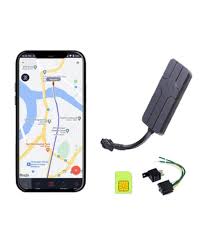Fleet GPS tracking refers to the use of GPS (Global Positioning System) technology to monitor and manage a fleet of vehicles in real time. It provides businesses with accurate location data and analytics to improve fleet performance, streamline operations, and reduce costs. Here’s a closer look at the features and benefits of fleet GPS tracking:
Key Features of Fleet GPS Tracking:
- Real-Time Location Tracking: GPS trackers provide the exact location of each vehicle in the fleet, helping managers monitor vehicle movements on a map.
- Route Optimization: It suggests the most efficient routes to minimize travel time, fuel consumption, and wear and tear on vehicles.
- Driver Behavior Monitoring: GPS systems track driver behavior, including speed, harsh braking, and idling, which helps improve safety and reduce accidents.
- Maintenance Alerts: Tracking systems can provide vehicle maintenance reminders based on time or mileage to ensure the fleet is well-maintained.
- Geofencing: Managers can set up virtual boundaries (geofences) to receive alerts when a vehicle enters or exits a designated area.
- Historical Data & Reporting: Detailed reports on vehicle performance, fuel usage, and driver behavior help businesses identify areas for improvement.
- Fuel Management: Monitor fuel consumption and reduce waste by identifying inefficient driving habits and unauthorized fuel usage.
- Safety & Security: In case of theft or unauthorized use, GPS tracking systems can help locate the vehicle quickly, enhancing security.
Benefits of Fleet GPS Tracking:
- Increased Efficiency: Helps route vehicles more effectively, reducing idle time and travel distance.
- Cost Savings: By optimizing routes and reducing fuel consumption, businesses can cut operating costs.
- Improved Customer Service: Accurate ETAs and efficient routes lead to faster deliveries, improving customer satisfaction.
- Enhanced Safety: Monitoring driver behavior encourages safe driving, reducing the risk of accidents and liability.
- Better Decision-Making: Fleet managers have access to real-time data, helping them make informed decisions quickly.
- Compliance with Regulations: GPS tracking helps ensure that drivers comply with laws, such as hours of service regulations.
Types of Fleet GPS Tracking:
- Hardware-Based GPS Trackers: These devices are installed in each vehicle, sending location data back to a central server.
- Smartphone Apps: Some fleets use smartphone apps for GPS tracking, allowing drivers to use their own devices to report location data.
- Onboard Diagnostics (OBD-II) GPS Trackers: These devices plug into the vehicle’s OBD-II port and gather data directly from the vehicle’s computer.
Applications:
- Delivery and Logistics: Improve efficiency in delivery routes and track goods in transit.
- Field Service Management: Ensure that service technicians are dispatched efficiently and monitor job progress in real time.
- Construction: Monitor construction vehicle usage and ensure equipment is used efficiently on site.
- Public Transportation: Track buses and public transport vehicles to provide real-time updates to passengers.
In conclusion, fleet GPS tracking is a powerful tool for businesses looking to streamline their operations, reduce costs, and improve safety across their fleet of vehicles. By using real-time data, companies can make smarter, more informed decisions that contribute to their overall success. Read More.. obd gps tracking




Comments
Post a Comment